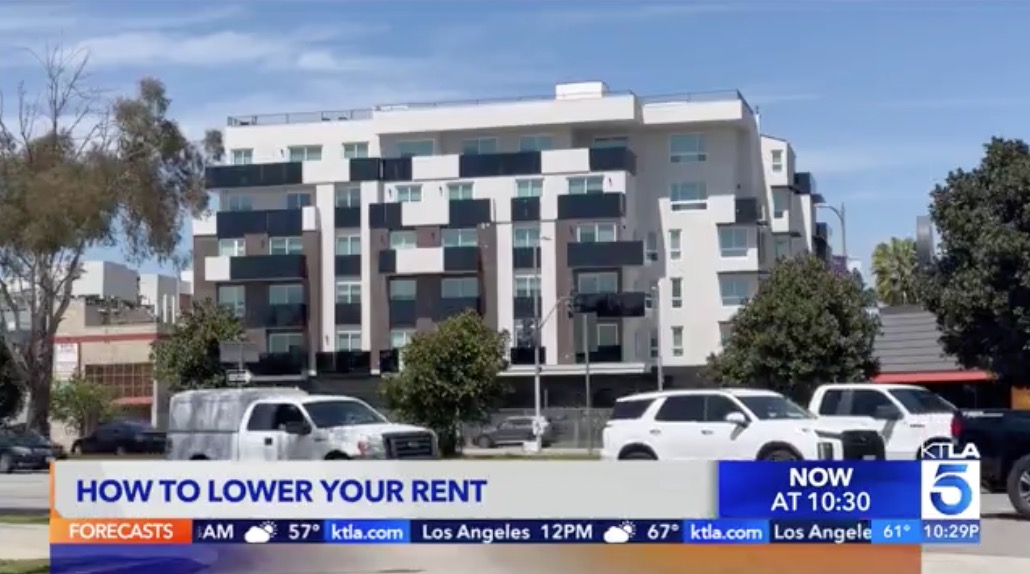Written by Hannah Hildebolt
Finding the perfect rental property, like that dream apartment in the city’s heart, is an exciting journey, especially for first-time renters and college students stepping into independence. But often, this journey hits a roadblock when landlords demand a credit check or proof of a stable income. This is where the concept of a cosigner comes into play, particularly for renters with a low credit score or insufficient rental history.
If you want to land the perfect rental apartment, you’ll need a stand-out rental application. Maybe you don’t have a credit history or it’s your first time renting. In cases such as these, your landlord might require you to have a cosigner on your lease.
What Is A Cosigner?
A cosigner on a lease agreement agrees to take on the financial responsibility and legal obligations should the primary signer (the renter) fail to make rent payments. This is different than a roommate — a cosigner doesn’t live with you.This role is critical, especially for renters with a bad credit history or those who do not meet the income requirements of landlords or property managers. The cosigner assures the landlord that monthly rent will be paid, even if the renter faces financial difficulties.
This is different from a guarantor. A guarantor has secondary financial responsibility. That is, a guarantor guarantees to pay the debt or fulfill the obligations of the primary signer only if the primary signer fails to do so.
Who Needs A Cosigner?
Typically, rental agencies or property managers ask individuals with a poor credit score or no credit history to have a cosigner. This situation is common among college students, young professionals, or first-time renters who haven’t yet built a substantial credit report. Additionally, those who have previously faced eviction or have a spotty rental history might need a cosigner to secure a lease.
How Do You Find A Cosigner?
Finding a reliable cosigner requires careful consideration. A potential cosigner can be a family member, a significant other, or a trusted friend with a good credit score and a stable income. It’s important to choose someone who understands the financial obligations and is willing to assume this responsibility. Open and honest discussion about the lease and cosigner agreement terms is crucial before anyone signs on the dotted line.
What Are A Cosigner’s Responsibilities?
A cosigner’s main responsibility is to guarantee the rental payments and other financial obligations under the lease agreement. If the renter fails to make monthly payments, the cosigner is legally obliged to pay. This obligation covers the cost of any damages or unpaid rent, including possible eviction processes. It’s a substantial financial commitment, so the decision to be a cosigner should not be taken lightly.
What are the responsibilities of a cosigner on a lease agreement?
Apart from ensuring rent payments, a cosigner may also need to meet specific requirements set by landlords, such as undergoing a credit check and background check, providing proof of income, and meeting certain state laws and income requirements.
What Potential Problems Could Occur With A Cosigner?
Several issues can arise with a cosigner. If the renter fails to pay rent, it could strain personal relationships and impact the cosigner’s credit score. There’s also the legal aspect; if the renter is evicted, the cosigner could be held responsible for the remaining rent or legal fees. Therefore, both parties need to understand the full extent of cosigning.
Is Cosigning A Lease A Good Idea?
Cosigning a lease can benefit renters who cannot meet the stringent credit and income requirements on their own. For the cosigner, it’s an opportunity to help someone secure their dream apartment. However, the decision should be weighed against the potential risks and financial responsibilities involved.

Why Do Landlords Not Like Cosigners?
Landlords might be wary of cosigners because it can complicate the eviction process and create additional administrative work. A cosigner who is not a local resident can also be perceived as less committed to ensuring the tenant’s adherence to the rental agreement.
Can Cosigning A Lease Hurt Your Credit?
Yes, cosigning a lease can affect your credit. If the renter makes timely rental payments, it could improve the cosigner’s credit. However, missed or late payments will negatively impact both the renter’s and cosigner’s credit scores, as reported by credit bureaus.
How Long Does A Cosigner Stay On A Lease?
A cosigner remains responsible for the lease’s terms for its entire duration. The obligation typically ends when the lease is renewed or a new lease is signed without the cosigner’s involvement.
What Are The Risks Of Cosigning An Apartment Lease?
The primary risk for a cosigner is the financial burden. If the renter defaults on the lease, the cosigner is legally obligated to cover the rent and any additional costs. This could include covering the security deposit or paying off any debts incurred from damages or eviction.
What Are The Risks Of Cosigning A Lease For An Apartment?
In addition to financial risks, cosigning can strain personal relationships. If the renter fails to meet their obligations, it can lead to uncomfortable situations between the renter and the cosigner.
Will Cosigning for an Apartment Help or Hurt My Credit?
When you cosign on a lease, you’re making a legal promise to uphold the terms of the lease and to pay rent if the lessee does not. As a cosigner, your credit could be affected whether or not the person you’re cosigning with pays their rent.
This uncertainty makes cosigning for an apartment risky. Before you agree to the lessee’s request, understand the risks and how to mitigate them.
How Cosigning for an Apartment Affects Your Credit
In some cases, vouching for someone’s apartment might not affect your credit score at all. If the landlord doesn’t check into your credit history during the application process, the renter pays on time, and the landlord doesn’t bother reporting those payments to credit bureaus, your credit report will most likely stay the same.
But that’s just one possibility. Cosigning a lease can also negatively affect your credit score in some situations, while in a few others, it might even give it a little boost.
How Cosigning Can Hurt Your Credit
Reported late rent payments and defaulted leases are among the risks cosigners open themselves up to:
- The landlord could report late payments. Some landlords report monthly rental payments to the credit bureaus, which means your payment history could take a hit if the lessee pays rent late. This could lower your credit score and make you a less attractive borrower to lenders.
- The debt could go to collections. If a landlord is unsuccessful in collecting rent and enlists the help of a collection agency, the collection account can show up on your credit report and stay there for up to seven years after the account first became delinquent.
- An inquiry could appear on your report. It’s standard for a landlord to check your credit when you cosign for an apartment, which may appear as a hard or soft inquiry on your credit report. A hard inquiry could lower your credit score by a few points for up to 12 months.
What to Consider Before Cosigning
Don’t take the decision to cosign lightly. Before you sign on the dotted line, think carefully about the following:
- How could cosigning impact your relationship? If the lessee mismanages the lease, the potential financial and credit hit could put a strain on your relationship.
- What about roommates? You’re not just cosigning for the lessee, but also for any co-tenants. If you don’t know and trust their roommates, you may not want to bet your credit on their reliability.
- Once you cosign, changing your mind isn’t an option. Cosigning on a lease is the same thing as signing a lease—typically, you’re on it until the lease expires.
- Can you afford the rent? Cosigning is a promise to pay the rent if the lessee does not. To figure out how much you could be on the line for if they default, multiply the monthly rent by the duration of the lease. If you had to pay this number, how would it affect you financially?
- You’ll generally need good credit. Your relative or friend may be asking you to cosign because their credit score doesn’t quite qualify them. Does yours? Find out what score the landlord requires and then check your credit score for free through Experian to see.
- Your debt-to-income ratio may increase. Tread carefully if you plan to apply for a major loan such as a mortgage in the next 12 months. Lenders may count the rents you’ve cosigned for as a monthly debt, which could disqualify you from a mortgage, require you to put more down or raise your interest rate.
Weigh Your Options and Proceed With Caution
Cosigning on a lease carries one definite benefit: You’re helping someone you care about qualify for housing. That said, you must weigh your personal stakes against the risks and responsibilities of cosigning to make the best decision for you.
In conclusion, having a cosigner on your apartment lease can be a viable solution for renters struggling with a low credit score or lacking a substantial credit history. It opens doors to rental opportunities that might otherwise be inaccessible. However, both renters and cosigners must enter this agreement clearly, understanding the responsibilities and potential risks involved. For more insights and tips on renting, visit Dwellsy.com, where we guide you through the complexities of finding and securing your ideal rental home.
We hope this blog post provided a little insight into how cosigning works. Good luck with your search, and happy renting!
Check out the Dwellsy blog.
Looking for a rental? Dwellsy has you covered.








